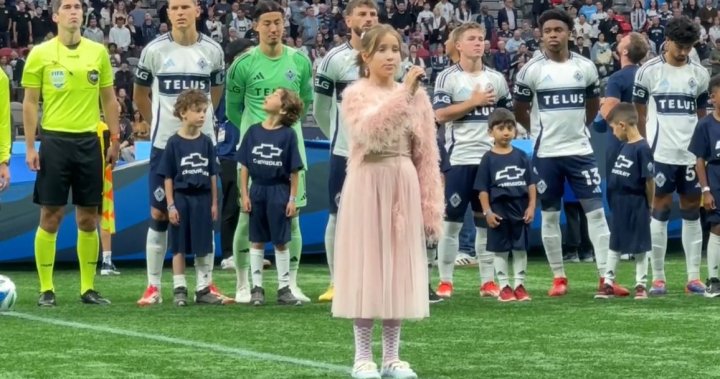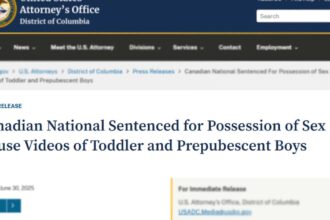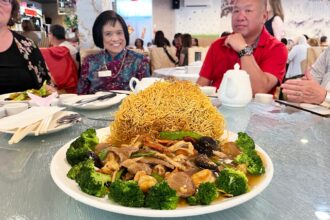In the quiet suburbs of Vancouver, a remarkable voice has emerged that defies expectations of youth and experience alike. Ten-year-old Sophia Chen has become British Columbia’s newest musical sensation, captivating audiences with vocal abilities that seasoned performers twice or even three times her age might envy. When she opens her mouth to sing, the pure, crystalline soprano that emerges seems almost impossible coming from someone who still enjoys playground games and animated movies.
I first encountered Sophia’s talent during a small community performance at Vancouver’s Queen Elizabeth Theatre. The audience fell into a stunned silence as this diminutive figure in a simple blue dress commanded the stage with an authority that seemed to transcend her physical presence. Her rendition of “O mio babbino caro” from Puccini’s Gianni Schicchi carried emotional depth that left many wondering how someone so young could convey such complex sentiments.
“What we’re witnessing is extraordinarily rare,” explains Dr. Eleanor Winters, head of vocal studies at the Vancouver Academy of Music. “Sophia possesses not only the technical capability but also an intuitive understanding of the emotional landscape of these complex pieces. This combination in a child her age appears perhaps once in a generation.”
The journey to operatic acclaim began when Sophia was just six years old. Her parents, both amateur musicians themselves, noticed their daughter’s unusual ability to perfectly match pitch while singing along to the radio. Unlike many child prodigies whose parents aggressively push them toward performance, the Chens took a measured approach, initially seeking vocal training simply to protect their daughter’s remarkable instrument.
“We were actually concerned about her singing so much without proper technique,” explains Wei Chen, Sophia’s father. “We never imagined it would lead to something of this magnitude. We simply wanted her to enjoy music safely.”
That cautious approach has served them well. Under the tutelage of renowned vocal coach Maria Petrov, Sophia’s natural gifts have been carefully cultivated without the pressure that often accompanies exceptional talent. Petrov has worked with numerous professional singers throughout her career but admits that teaching Sophia requires a different approach.
“Children’s vocal cords are still developing, so we must be extremely careful,” Petrov notes. “With Sophia, the challenge isn’t teaching her to sing—she does that naturally—but rather ensuring she doesn’t overextend herself. The voice is like any muscle; it needs to develop gradually.”
The young virtuoso’s rise hasn’t been without controversy. Some vocal experts express concern about a child performing operatic works traditionally meant for fully developed adult voices. Dr. Jason Reynolds, a pediatric otolaryngologist specializing in vocal health, urges caution while acknowledging Sophia’s exceptional circumstances.
“Most children simply aren’t physically capable of the techniques required for classical opera without risking damage,” Reynolds explains. “What makes Sophia unusual is her natural placement and breath control. Still, her team needs to carefully monitor her development and ensure appropriate rest periods.”
This concern for vocal health is precisely why Sophia’s performance schedule remains limited to just one major appearance every few months, alongside her regular studies at a public elementary school in Vancouver. Her parents insist that education and normal childhood experiences remain priorities.
The cultural significance of Sophia’s emergence extends beyond her remarkable talent. In an era where classical music struggles to attract younger audiences, this child prodigy serves as a powerful ambassador. Her performances, often shared through social media by audience members, have garnered millions of views online, introducing opera to viewers who might never have encountered the art form otherwise.
“Young performers like Sophia represent the future of classical music,” observes Thomas Wellington, artistic director for the Vancouver Opera. “They remind us that these centuries-old art forms remain vibrant and accessible even to contemporary audiences. Her natural ability to connect emotionally with listeners transcends age barriers.”
As British Columbia’s cultural institutions navigate post-pandemic recovery, Sophia’s appearances have consistently sold out, drawing diverse audiences that span generations and backgrounds. The CO24 Culture team has observed this phenomenon across multiple classical music events featuring young performers, suggesting a potential renaissance in public engagement with traditional art forms.
The question of where Sophia’s journey leads remains open. Many child prodigies face challenges transitioning to adult careers, particularly in vocal performance where physical development dramatically alters the instrument itself. Some, like Charlotte Church, successfully navigate this transition, while others fade from public view as their voices mature.
“What makes me hopeful for Sophia is her genuine love of music beyond performance,” notes her teacher Petrov. “Whether she continues professionally or not, this foundation will serve her well throughout life.”
For now, Sophia herself remains refreshingly grounded about her extraordinary gift. When asked what she enjoys most about singing opera, her answer reflects both her youth and wisdom beyond her years: “I like how it makes people feel things. Sometimes they cry, sometimes they smile. I think music helps people remember important things they might have forgotten.”
As we witness the early chapters of what promises to be a fascinating artistic journey, one thing remains clear: British Columbia has produced a remarkable talent whose voice transcends boundaries of age and experience. Whether Sophia Chen ultimately takes her place among the great operatic performers or simply enjoys a lifetime of musical appreciation, her current impact on our cultural landscape represents something genuinely worth celebrating.
The next generation of musical excellence has arrived, and she’s still doing homework after rehearsals.

























